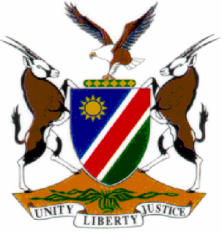4
REPUBLIC OF NAMIBIA NOT REPORTABLE

HIGH COURT OF NAMIBIA, MAIN DIVISION
JUDGMENT
CR No: 59/2017
In the matter between:
THE STATE
and
CYPRIAN SEBASTIEN WITBOOI ACCUSED 1
MOREDI JOSOB ACCUSED 2
Neutral citation: S v Witbooi (CR 59/2017) [2017] NAHCMD 290 (10 October 2017)
CORAM: LIEBENBERG, J et SHIVUTE, J
DELIVERED: 10 October 2017
ORDER
Accused 1 and 2’s convictions are confirmed.
Accused 1’s sentence is amended to read: Twelve (12) months’ imprisonment, wholly suspended for a period of (5) five years, on condition that the accused is not convicted of the offence of possession of a dependence producing substance in contravention of s 2(b) of Act 41 of 1971, committed during the period of suspension.
Accused 2’s sentence is amended to read: Ten (10) months’ imprisonment, wholly suspended for a period of (5) five years, on condition that the accused is not convicted of the offence of possession of a dependence producing substance in contravention of s 2(b) of Act 41 of 1971, committed during the period of suspension.
REVIEW JUDGMENT
LIEBENBERG J (concurring SHIVUTE J):
[1] The accused persons were in contravention of s 2(b) of the Abuse of Dependence-Producing Substances and Rehabilitation Centres Act 41 of 1971, convicted of possession of dependence-producing substances.
[2] Accused 1 was sentenced to, ‘[T]welve (12) months imprisonment wholly suspended for (5) five years on the condition that the accused person is not convicted of offences contravening Act 41 of 1971 committed during the period of suspension’, while Accused 2 was sentenced to, ‘[T]en (10) months imprisonment wholly suspended for (5) five years on the condition that the accused person is not convicted of offences contravening Act 41 of 1971 committed during the period of suspension’.
[3] Given the breadth, disassociation and ambiguity of the condition suspending the accused persons’ sentences with the offence of which they were convicted, (when the matter came on review), I directed a query to the presiding magistrate in that regard.
[4] The magistrate replied to the query by conceding that the condition of suspension was too wide and proposed an amendment thereto.
[5] Conditions suspending a sentence must not be wide, they must strictly be connected with the offence in respect of which accused persons are convicted and be clearly formulated for the understanding of the accused persons to enable them to avoid conduct that would bring the suspended sentences into operation.1
[7] The magistrate’s concession and proposed amendments to the conditions suspending the accused persons’ sentences are well-founded and I accordingly make an order in the proposed terms.
[6] In the result, it is ordered:
Accused 1 and 2’s convictions are confirmed.
Accused 1’s sentence is amended to read: Twelve (12) months’ imprisonment, wholly suspended for a period of (5) five years, on condition that the accused is not convicted of the offence of possession of a dependence producing substance in contravention of s 2(b) of Act 41 of 1971, committed during the period of suspension.
Accused 2’s sentence is amended to read: Ten (10) months’ imprisonment, wholly suspended for a period of (5) five years, on condition that the accused is not convicted of the offence of possession of a dependence producing substance in contravention of s 2 (b) of Act 41 of 1971, committed during the period of suspension.
_________________
J C LIEBENBERG
JUDGE
_________________
N N SHIVUTE
JUDGE
1 S v Shitapata (CR 30/2017) [2017] NAHCMD 134 (12 May 2017); State v Nghilifavali (CR 8 /2016) [2016] NAHCMD 58 (8 March 2016); Hiemstra’s Criminal Procedure. 2008. LexisNexis. Pg. 28 – 77 – 28 – 81.
Cited documents 3
Judgment 2
- S v Nghilitavali (CRIMINAL 8 of 2016) [2016] NAHCMD 58 (8 March 2016)
- S v Shitapata (CRIMINAL 30 of 2017) [2017] NAHCMD 134 (12 May 2017)